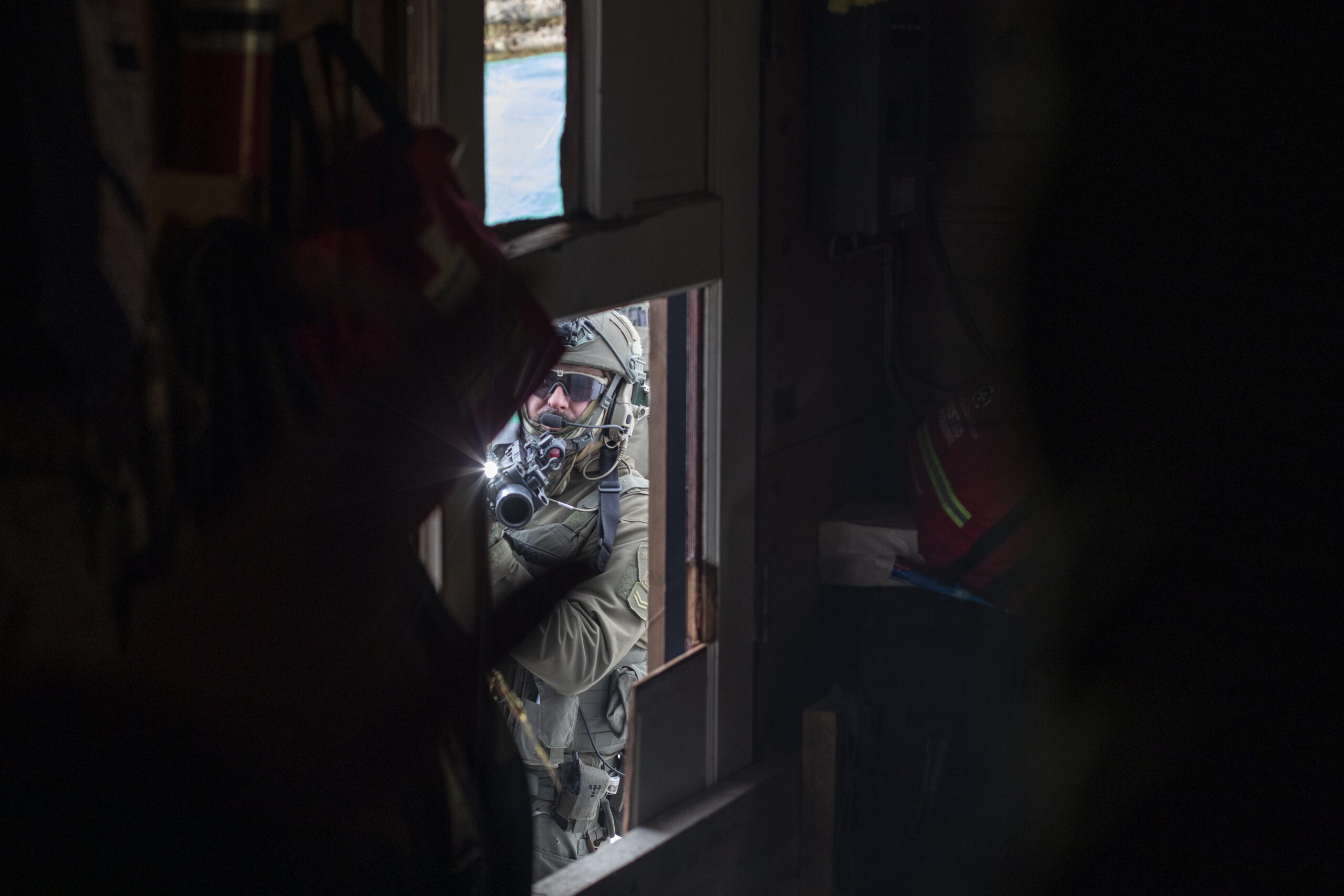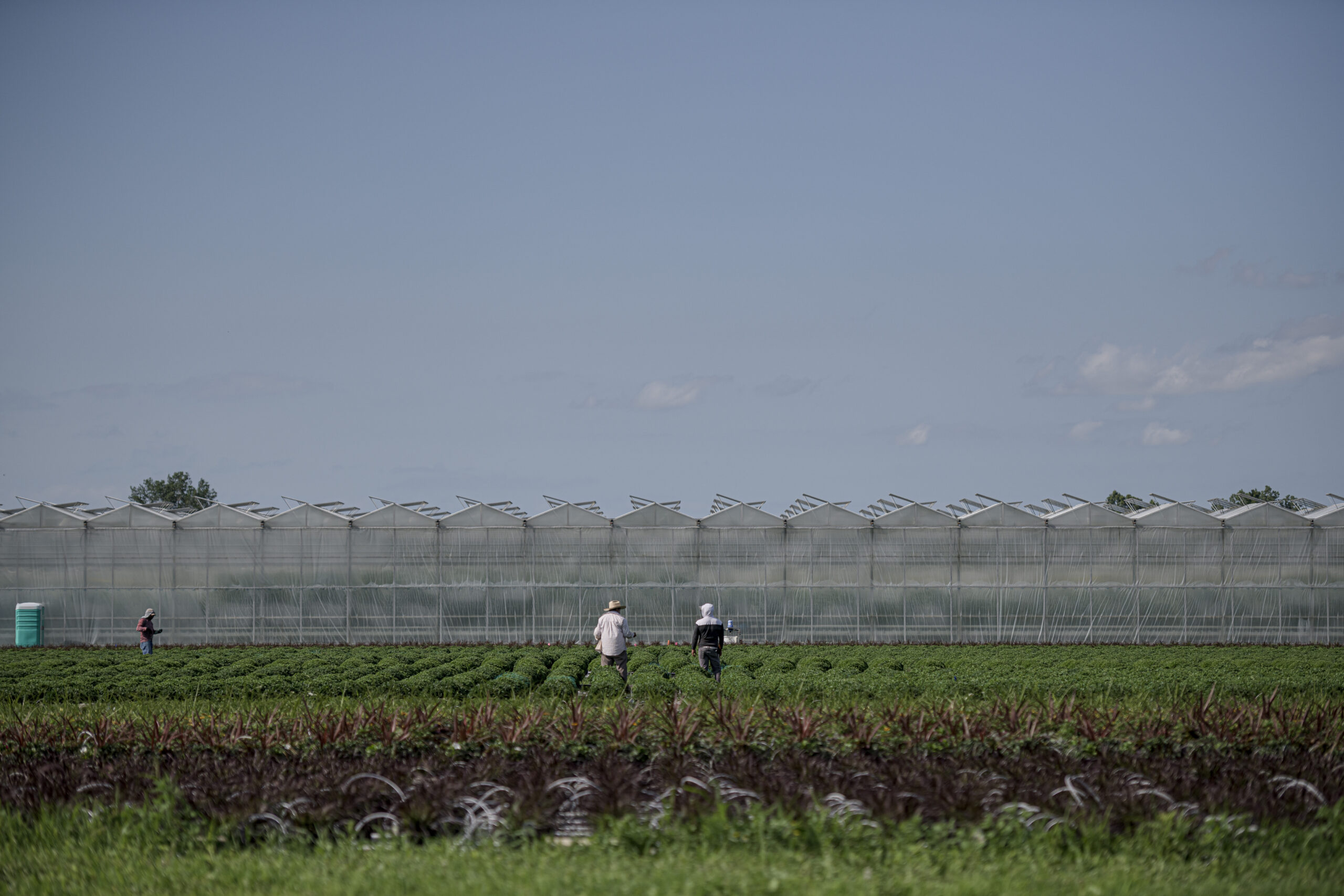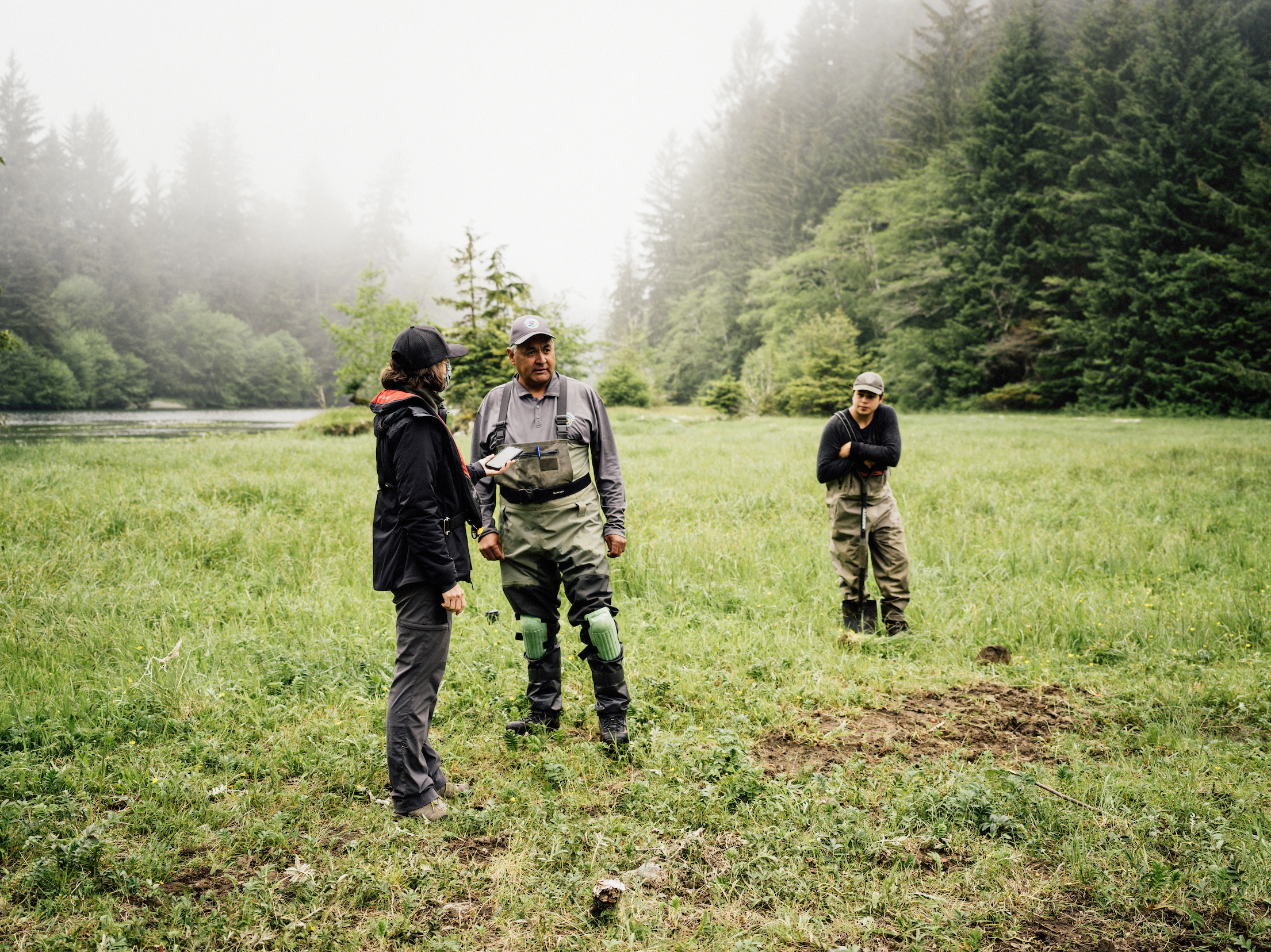
Canadians have another facet of national defence right under our noses
The current trade war with the U.S. means Canada must confront whether its domestic food...
At the Canadian Association of Journalists (CAJ) awards gala in Montreal Saturday night, The Narwhal took home four awards for outstanding journalism — more than any other news organization.
The Narwhal picked up awards for photojournalism, labour reporting and environment and climate change reporting and Sḵwx̱wú7mesh reporter Stephanie Kwetásel’wet Wood won the CAJ’s emerging Indigenous journalist award.
“We are immensely honoured to see our team’s boundary-pushing journalism recognized as the best of the best by the Canadian Association of Journalists,” said The Narwhal’s co-founder and editor-in-chief Emma Gilchrist.
“When we launched The Narwhal four years ago, we made a gamble that readers would be willing to support our non-profit, ad-free model of investigative journalism. They have stepped up in droves by becoming members of The Narwhal, allowing us to invest in stories that aren’t being told anywhere else.”
The emerging Indigenous journalist award recognizes exemplary journalism by a First Nations, Inuit or Métis journalist in the first five years of their career. Wood’s portfolio of award-winning work included a feature on a community forest charting new territory for climate action, a solutions-oriented piece looking at what happened to Clayoquot Sound after the ‘war in the woods’ and a first-person view on what reconciliation should look like for settler Canadians.
“Despite being in the early stages of her career, Steph already has an astounding grasp of feature writing, a knack for nuance and is an expert at building rapport with her sources,” wrote The Narwhal’s executive editor Carol Linnitt in Wood’s nomination letter. “In two short years, Stephanie has become an irreplaceable part of The Narwhal.”
Amber Bracken won the photojournalism category for her work documenting Wet’suwet’en land defenders and their fight against TC Energy’s Coastal GasLink pipeline — work for which she was wrongfully arrested and jailed for three nights. Charges against her were dropped by Coastal GasLink a month later.

“As long as it’s this clear that police don’t want us to see something, I think it is even more critical for us to push to see what they don’t want us to see,” Bracken said in accepting the award.
In 2020, Bracken was also awarded the Charles Bury President’s Award by the Canadian Association of Journalists for her outstanding contributions to journalism in Canada for her coverage of the Wet’suwet’en crisis for The Narwhal.
In the labour reporting category, Hilary Beaumont’s investigation into migrant worker conditions in Ontario earned the nod. Beaumont spent months speaking with more than 30 migrant workers and filed freedom of information requests to uncover a story of failures in government oversight and company operations that put these workers — already in precarious situations — at heightened risk during a global pandemic.

Photographer Christopher Katsarov Luna’s imagery from inside the cramped bunkhouses offer a jarring portrait of the people Canadians rely on to stock their grocery shelves. Editors Denise Balkissoon, Mike De Souza, Arik Ligeti, Elaine Anselmi and Carol Linnitt were also honoured for their work behind the scenes to pull off the multimedia feature.
The Narwhal also picked up the award for environment and climate change reporting for Sarah Cox’s feature on the Pacheedaht First Nation’s relationship to logging in the Fairy Creek watershed.
“Instead of a one-sided portrait of a nation for or against forestry, Sarah learned that the story behind the Fairy Creek blockades was one of a decades-long battle for Indigenous economic sovereignty,” Linnitt wrote in her letter of support.
“While Canadians consumed hundreds of news stories about daily arrest counts and B.C.’s dwindling old-growth, The Narwhal was the only publication in Canada to represent the complicated relationship this First Nation has with not only the landscape, but those who seek to conserve it.”
Cox thanked the Pacheedaht Nation’s leadership for entrusting her with their story and photographer Taylor Roades for capturing the story in photos.

This year’s Charles Bury President’s Award was given to “the legends of Canadian lawyers who have generously provided pro-bono legal services to help uphold journalists’ rights to report.”
The award was accepted by lawyer Sean Hern, who represented a coalition of journalism organizations, including The Narwhal, in a successful court challenge against the RCMP’s restrictions on press freedom at Fairy Creek.
The Narwhal’s Ontario reporter Emma McIntosh won in the online media category for reporting she did for the National Observer before she joined The Narwhal.
The McGillivray Award, awarded to the best overall investigative journalism, was presented to APTN News’ Brittany Guyot and Kathleen Martens for their work investigating student deaths at Indian day schools.
Finalists for the emerging Indigenous journalist award included APTN’s Shushan Bacon and TVO’s Charnel Anderson.
For labour reporting, the other nominees were a team from CBC Radio One – Ideas as well as Inori Roy and Tahmeed Shafiq for work in The Local.
In the photojournalism category, Bracken was up against Ben Nelms, Cole Burston, Nathan Denette and Darryl Dyck. In the environment and climate change category, finalists included Michelle Gamage and Sean Holman at The Tyee, Pierre St-Arnaud at La Presse Canadienne and a team from CBC British Columbia.
Get the inside scoop on The Narwhal’s environment and climate reporting by signing up for our free newsletter. On March 17, federal Conservative Leader Pierre Poilievre...
Continue reading
The current trade war with the U.S. means Canada must confront whether its domestic food...

Residents and nearby First Nations wanted a new environmental impact assessment of the contentious project....

Growing up, Christian Allaire loved spending summers with his cousins in his grandma’s backyard, near...
